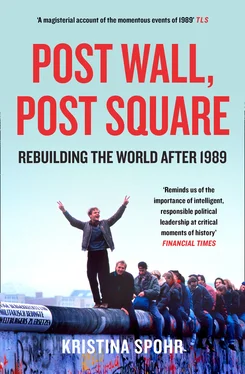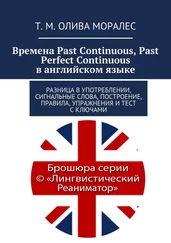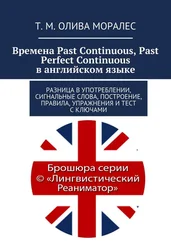1 ...8 9 10 12 13 14 ...57 By the end of the Reagan administration Washington viewed Beijing with almost a sense of triumph. Secretary of State George Shultz described China’s ‘long march to the market’ as a ‘truly historic event – a great nation throwing off outmoded economic doctrines and liberating the energies of 1 billion talented people’. When Bush took office, therefore, it seemed axiomatic that Deng’s economic reforms were fully embedded and would go from strength to strength. The question now in Washington was how soon economic change would generate political change – akin to the transformations in the Soviet bloc under Gorbachev. Like a succession of American leaders since the era of Franklin Roosevelt and Cordell Hull, Bush tended to assume that one form of change would lead to the other: democratisation in China therefore seemed not a question of whether but when.[62]
Yet the consequences of Deng’s economic reforms were double-edged. They stirred popular desire for a more open society but also provoked mounting discontent by the late 1980s. During Mao’s Cultural Revolution a whole generation had lost out on higher education, and when Deng set China on course to catch up with the developed and developing world, frustrated radicals turned Beijing, Shanghai, Wuhan and other university cities into hotbeds of dissent. This occurred just when inflation hit unprecedented levels (8.8% in 1985) as the command economy was eased. The regime embarked on cautious political reforms and allowed intellectuals and academics a freer rein. Fang Lizhi, astrophysicist and vice chancellor of the University of Science and Technology in Hefei, became celebrated in the West for his advocacy of human rights and his support of student protest. And journalist Liu Binyan gained notoriety after he famously stated that ‘the economic reform is a very long leg in China, while the political reform is a very short one. One can’t proceed without being tripped up by the other.’ By way of explanation, he added: ‘The student movement […] exploded because political reform had hardly begun.’[63]
China’s leadership was not ready for democracy. Spasms of political openness were followed by harsh crackdowns when protests got out of hand. The problem wasn’t simply in the streets or on the campuses, it was also eating away at the party itself in a battle between hardliners and reformers. In a backlash against ‘bourgeois liberalisation’, conservative elders forced out the reformist party general secretary, Hu Yaobang, in January 1987.[64] There was a further challenge. The ageing Deng knew he had to hand over soon to the next generation. He ensured that Hu was replaced by another moderate, Zhao Zhiang, who in the autumn, at the CCP Congress, pushed through a watered-down programme of political reform. This resulted in the retirement of nearly half the Central Committee members – a major step in rejuvenating the party. Retirees included Deng himself who retained only the crucial post of chairman of the Military Affairs Committee. A temporary calm was established between the rival factions of the CCP and the Politburo’s vital Standing Committee, which hung in uneasy balance between reformists led by Zhao and conservatives headed by Li Peng.[65]
During 1988 the inflation rate rose to an unprecedented 18.5%[66] and student protests at price hikes, overcrowding and corruption hit new heights. Things got even worse in 1989. Media reports and images of the political transformation under way in the Soviet satellite states galvanised the protestors, and the impending seventieth anniversary of China’s fabled student uprising against the humiliations imposed on the country by the Versailles Treaty in 1919 – the Fourth of May Movement – also loomed large.[67] Deng – revealing that he worried more about the contagion of the Eastern European and Soviet reforms than Western political ideas – stated in a speech on 25 April 1989: ‘This is not an ordinary student movement but a turmoil … Those influenced by Yugoslav, Polish, Hungarian, and Soviet liberalism have destabilised our society with the objective of overthrowing the Communist leadership, which will endanger the future of our country and our nation.’ The CCP still had no intention of loosening its grip on society or allowing political pluralism in the manner of Gorbachev.[68]
This, however, did not seem to bother George Bush. He had faith in Deng as a progressive leader, whereas Gorbachev was still an unknown quantity and the Soviet Union much more of an existential threat to America and NATO. So, once he became president, there seemed no reason for any kind of ‘pause’ in Sino-American relations. On the contrary Bush, as he had told Brzezinski in November 1988, was keen to consolidate and advance his ‘special relationship’ with Deng and China as soon as possible.
There was also another pressing concern on Bush’s mind. Nothing about China could ever be considered without taking Sino-Soviet relations into account. Washington, Moscow and Beijing formed a strategic triangle whose dynamics were always in flux. Bush was well aware that, a year before he assumed office, Mikhail Gorbachev had already formally proposed a summit meeting with the Chinese leadership – the first since Khrushchev and Mao had met in 1959 on the brink of the Sino-Soviet split that brought the two countries to the verge of war ten years later.
Gorbachev’s overture reflected his desire for normal relations between the world’s two largest communist nations but it was also driven by the need for international stability so as to concentrate on reforms at home. Deng, in turn, had always been clear about China’s conditions for such a summit: 1) that Moscow reduce its military presence along the Sino-Soviet border; 2) that the Soviets withdraw their troops from Afghanistan; and 3) that the Kremlin end support for the Vietnamese occupation of Cambodia. By the end of 1988 the Chinese were sufficiently satisfied with Soviet concessions to issue a formal invitation for Gorbachev to come to Beijing in May 1989 for summit talks with Deng. The visit was intended to symbolise Sino-Soviet rapprochement after three decades of estrangement and even antagonism.[69]
Gorbachev did not know Deng personally. He had never been to China and was certainly not a lao pengyou . Twenty-seven years Deng’s junior, Gorbachev had few memories of Sino-Soviet relations before the split, which had occurred when he was only in his twenties. Nevertheless, like Bush, he had prioritised a breakthrough with China ever since becoming general secretary. Yet Deng was wary. Although he welcomed closer economic links with the USSR, he did not appreciate Gorbachev’s enthusiasm for political reforms and even spoke of him as an ‘idiot’ for putting politics before economics.[70] For his part, Gorbachev remained sceptical of China’s reform programme in the absence of a major political overhaul, which to his mind was required for a full and successful perestroika. And so he kept downplaying Chinese reforms and indeed prophesied their failure. He also dismissed the Chinese as mere imitators. ‘They all now claim they started perestroika before us,’ he scoffed. ‘They are adopting our approaches.’ Gorbachev’s lofty attitude reflected both a traditionally dismissive Soviet stereotyping of the PRC and also his own competitive, almost messianic, ambition that perestroika – as proclaimed on the title page of his book Perestroika – was not just ‘for our country’ but ‘for the entire world’.[71]
In fact Gorbachev appeared to see himself as the new Lenin. He claimed that his country was the leading state of the socialist system and, as his aide Georgy Shakhnazarov put it, one of the ‘greatest powers or superpowers of the modern world, upon which depends the fate of the world’. From this perspective, predominant among Kremlin policymakers and especially Gorbachev’s own entourage, China was still a secondary power, despite its remarkable recent rise from poverty and backwardness. Moscow itself had always craved recognition from the West to which it looked, at times neurotically, as the sole benchmark against which to measure its own successes. And in this bigger quest for international status, it was almost necessary to deride China’s experience and achievements.[72]
Читать дальше












